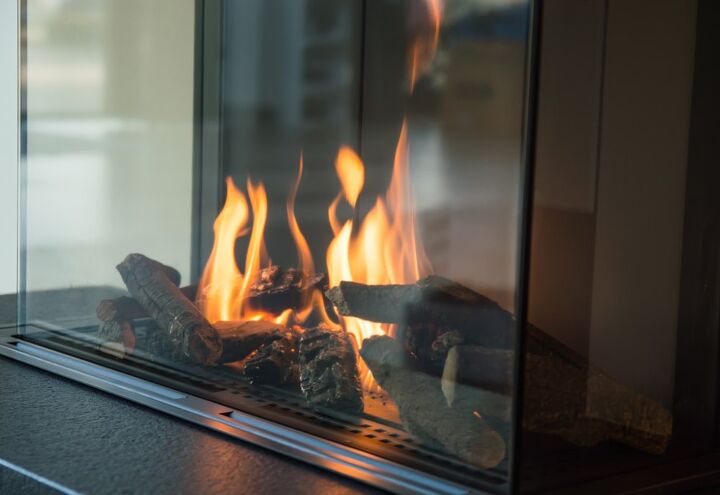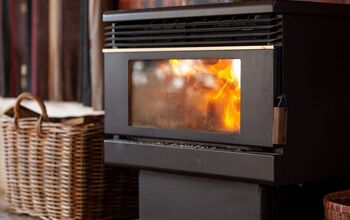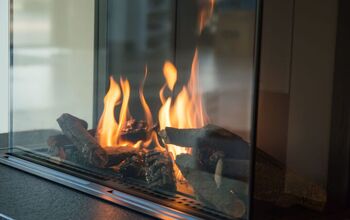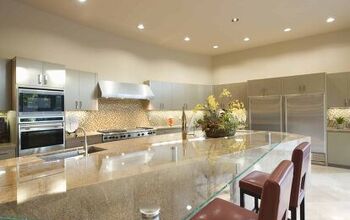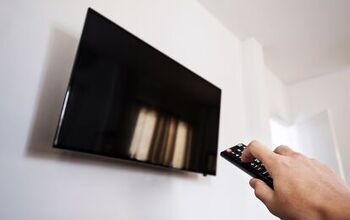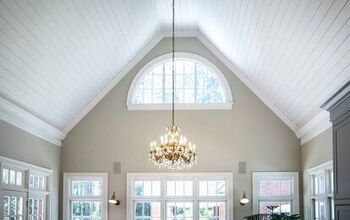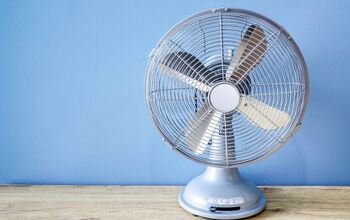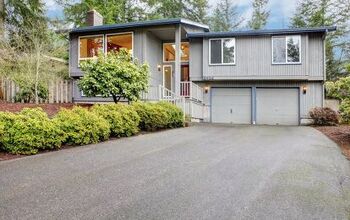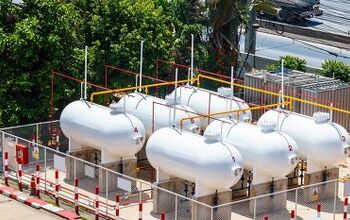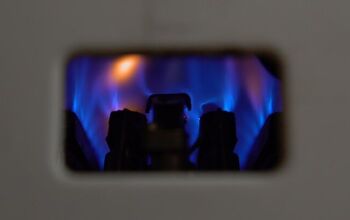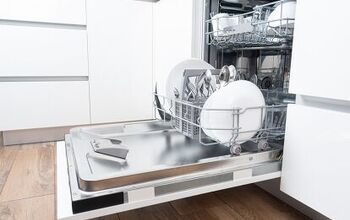Gas Fireplace Vs. Central Heating Costs: Which One Is Better?

There has always been a considerable debate on how to keep your home warm through the colder months of the year. Two of the most popular options tend to be a gas fireplace or a central heating system. While each has its unique uses and every individual has their preferences, it’s essential to consider a few factors.
Gas fireplace vs. central heating cost is usually one of the primary factors when considering heating options in the home. Ultimately, your choice of heating will come down to personal preference.
The average cost to run central heating per year is $1,000, on average, and it costs $800 per year to run a gas fireplace. Homeowners spend an average of $11,500 to install central heating systems, and it costs $2,200 on average to install a gas fireplace. Modern gas fireplaces can run at 90% efficiency and flue models have 100% efficiency.
Do You Need a Heating and Cooling Contractor?
Get free, zero-commitment quotes from pro contractors near you.

Gas Fireplace vs. Central Heating Cost: An Overview
If you’re trying to determine what the best heating option is for your home, it’s likely you’re torn between a gas fireplace and a central heating system. But how do you know which is superior? Well, there are a few factors you need to consider, such as operating costs and efficiency before you make your decision.
Operating Cost
Undoubtedly cost is always a primary concern when it comes to choosing most household conveniences. You want to consider the cost of installation and operational costs when thinking about heating systems for your home.
Gas fireplaces are known for being one of the cheapest heating systems available for homes. So much so that gas fireplaces can cost up to 70% less than electric fireplaces. How does that work? It’s simple. Gas heats itself while electricity heats another source to create heat in other types of fireplaces.
Pricing-wise, the cost per KW of gas in the United States is so low it’s well under a dollar. Alternatively, the cost of electricity per KW will run you a few dollars. There are additional costs that you can anticipate if you do not currently have a central heating system installed. Along with the unit, you’ll need to pay for the installation of a boiler, pipes, radiators, and control systems as well.
If you already have a system installed in your home you are in luck, but there will still be costs associated with operation. You can expect anywhere in the ballpark of a minimum of $1,000 per year on the operational costs of a central heating unit. The price will increase with the size of your home and frequency of usage.
So, when you compare the operating costs of a gas fireplace vs. central heating it’s clear that a gas fireplace is a winner. For a more detailed approach check out how much it costs to run a gas fireplace.
Efficiency
Efficiency is another component that should be considered when deciding on costs between gas fireplaces and central heating. With a gas fireplace, the efficiency will ultimately depend on the type of gas you are using. You can find high-efficiency gas fires that reach up to 90% and even a balanced flue high-efficiency gas reaching up to 94% efficiency.
For optimal efficiency, you can look for flueless gas fireplaces, eliminating the need for ventilation in the form of a chimney. Chimneys lead to the loss of heat and warm air, reducing the efficiency of fireplaces. But, in a flueless fireplace, you can get up to 100% usage efficiency. With an energy-efficient gas fireplace, you can heat your room at full capacity at around 3.5KW.
Modern-day central heating systems typically include an option allowing you to control your thermostat for different rooms remotely. You can also set up a schedule for your heating, ultimately providing more efficiency.
Boilers that have been updated in more recent years are usually 90% efficient when it comes to energy consumption – they are also relatively inexpensive. Keep in mind this is for more modern models, though, and older boilers won’t have the same results. In the end, a central heating system requires the use of a boiler, which can reach up to 15KW worth of energy consumption.
When it comes to comparing the efficiency of a gas fireplace vs. central heating it’s clear that gas is going to be more efficient. If you’re set on central heating, though, opt for a smart system that can help to improve your efficiency overall.
Gas Fireplace
As far back as the origins of humankind, you’ll see the method of burning logs to keep warm through cold nights. While this traditional method has since been technologically surpassed by central heating systems, some still prefer the warmth of a crackling fire in their homes.
Pros of Gas Fireplace
One of the most significant benefits of gas fireplaces is that they have meager operational costs. They are known as being the most cost-effective source of heating for your home. Gas fireplaces are also known to be one of the most reliable warmth sources, especially in single rooms or smaller areas.
Gas fireplaces also contribute aesthetically to any home. You can style them anywhere, or even tuck a gas fireplace into a corner. Not only are you providing warmth to the area, but you can also enjoy watching real flame-burning logs while doing so.
Contrastingly to other fuel fireplaces, gas fireplaces are much more clean and convenient. You can quickly warm them up and get heat permeating through the room in next to no time at all. Best of all, gas fireplaces do not leave any messy residue or odor.
Another benefit to gas fireplaces is that they are relatively simple to use and will still operate even if your boiler gets damaged or breaks down. Or, if you experience a power outage for any reason during the winter months, you can rest assured that you can still get warmth from your gas fireplace.
While some have concerns about the safety of fireplaces in their homes, you don’t have to worry about a gas fireplace. This type of fireplace has been cleared for health, safety, and environmental factors.
Cons of Gas Fireplace
While a gas fireplace is an excellent way to heat up an individual room or small area, it lacks in its ability to heat an entire home. If you are looking to keep your whole home heated, propane costs can be expensive and add up quickly.
Gas fireplaces heat up faster than other types of fireplaces, but also have a tendency to lose their heat more rapidly. Brick may hold onto the heat longer, but as previously mentioned a flueless option can help optimize your gas fireplace efficiency.
Central Heating
The modern approach to heating your home comes in the form of central heating units. While nothing quite beats a crackling fireplace, when it comes to heating larger homes entirely, it’s hard to compete with an entire system.
Pros of Central Heating
Unlike a fireplace, which is effective at warming a single room or small area, a central heating system is built to heat your entire house. One of the biggest benefits of a central heating system is that it moves from room to room in your home.
While central heating does take electricity to power the system, technology and innovation continue to evolve, making it increasingly more efficient. Today, you can find smart technology which manages the meters and temperature gauges wirelessly to help increase efficiency. Ultimately, smart systems can learn your habits and build an effective and efficient schedule based on your needs.
If you have a home that isn’t too big or has high ceilings, it can be better and more efficient to stick with central heating rather than heating a single room.
Cons of Central Heating
The biggest negative for central heating comes if you do not already have a home with a system installed. The costs for installation of a central heating system can range anywhere from $8,000 to $15,000 for a small to medium sized home.
Unlike gas fireplaces, central heating does take some time to begin feeling the effects of the heat source. Because of this, people tend to be more inclined to leave their system on for longer periods of time during the winter. As you can imagine, these costs can begin adding up if your system is constantly running.
Do You Need a Heating and Cooling Contractor?
Get free, zero-commitment quotes from pro contractors near you.

Gas Fireplace vs. Central Heating Cost: What’s the Verdict?
Choosing which is the better between gas fireplace vs. central heating cost will ultimately come down to the size of your home and whether you already have a central heating unit installed. These factors can impact the price of both systems tenfold.
For smaller homes, or anyone looking to heat a single room quickly and efficiently, a gas fireplace is an excellent solution. Gas fireplaces are safe, healthy, and relatively easy to use. Alternatively, if you have a larger home the cost of operating a central heating system is likely to be lower than gas to keep it warm through the winter. That is, if you already have a system installed.
Keep in mind the installation of a central heating cost is a very large chunk of cash, so make sure you do your research ahead of time to ensure that central heating is the best option for your home.

We are a team of passionate homeowners, home improvement pros, and DIY enthusiasts who enjoy sharing home improvement, housekeeping, decorating, and more with other homeowners! Whether you're looking for a step-by-step guide on fixing an appliance or the cost of installing a fence, we've here to help.
More by Upgraded Home Team



